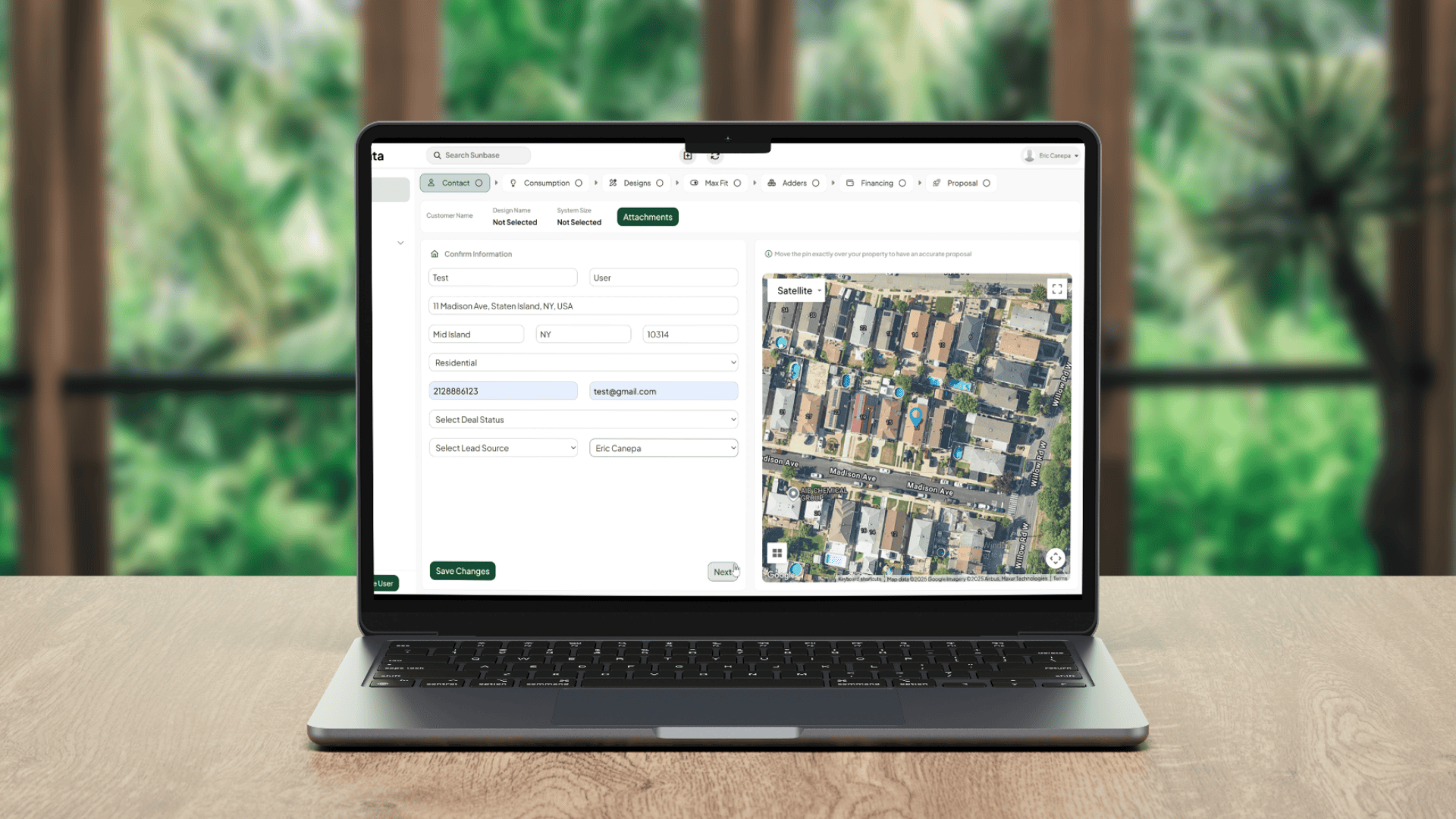June 1, 2023
Door-to-door salesmanship can be a lucrative and fulfilling career for those who are willing to put in the effort and develop the necessary skills. However, becoming a successful door-to-door salesman is not easy and requires a lot of hard work and dedication.
In this guide, we will explore the key skills and strategies that are necessary for success as a door-to-door salesperson.
Whether you are just starting out or are looking to improve your skills, this guide will provide you with the information and resources you need to succeed in this challenging and rewarding profession.
Definition of door-to-door sales
Door-to-door sales refer to the process of direct selling products or services to customers at their homes, offices, or other locations by visiting them in person.
The salesperson visits the potential customer's door, introduces the product or service, and tries to persuade the customer to make a purchase.
Door-to-door sales can involve a wide range of products and services, from home appliances and cleaning products to insurance policies and financial services. It requires a high level of interpersonal skills and the ability to build trust and rapport with potential customers.
Importance of door-to-door sales in various industries
Door-to-door sales can be important in various industries, including the solar industry and real estate. Here are some reasons why:
Building personal relationships:
Door-to-door sales can help build personal relationships with potential customers, which is particularly important in the solar industry and real estate.
Customers want to feel comfortable with the company they are dealing with, and face-to-face interactions can help build trust and confidence.
Identifying customer needs:
Right Door-to-door sales strategies can provide an opportunity to identify customer needs and tailor the product or service accordingly. In the solar industry, for example, a salesperson can assess the homeowner's energy needs and provide a customized solution.
Overcoming objections:
Face-to-face interactions can also help overcome objections that customers may have about the product or service. A skilled salesperson can address any concerns the customer may have and provide reassurance.
Targeted marketing:
Door-to-door sales can also be a targeted marketing approach, particularly in real estate. A salesperson can target and sell specific neighborhoods or communities and offer personalized services to potential buyers or sellers.
Increased sales:
Door-to-door sales can result in increased sales for companies. In the solar industry, for example, door-to-door selling and proper sales strategies have been found to be effective in increasing solar adoption rates among homeowners.
The benefits of door to door sales
There are several benefits of door-to-door sales for both customers and salespeople:
Personal interaction:
Door-to-door sales provide a personal touch that is often missing in other forms of sales. Customers can ask questions and get personalized answers, which can help them make informed decisions.
Building trust:
Face-to-face interactions can help build trust between the salesperson and the customer. Customers can see and touch the product, and interact with the salesperson, which can increase their confidence in the product and the salesperson.
Targeted marketing:
Door-to-door sales can be a targeted approach that allows salespeople to reach specific customers and neighborhoods. This can result in higher sales and a more efficient use of resources and money.
Overcoming objections:
In-person interactions can help salespeople overcome objections that customers may have about the product or service. Salespeople can address concerns and provide reassurance, which can help customers make a purchase.
Immediate feedback:
A good door-to-door salesperson is always looking for ways to make more sales and improve their sales techniques.
Door-to-door sales provide immediate feedback to salespeople. They can see firsthand how customers respond to the product or service, which can help them adjust their sales process, approach, and improve their sales technique.
Cost-effective:
Door-to-door sales can be a cost-effective business approach, particularly for small businesses. It requires minimal investment in marketing and can result in high returns.
Challenges faced by door-to-door salespersons
Selling Door-to-door can be a challenging profession that requires a lot of hard work and dedication. Here are some of the common challenges faced by door-to-door salespeople:
Rejection:
Salespeople face rejection on a daily basis, which can be demotivating and discouraging. It takes a lot of resilience and perseverance to continue making sales calls despite the rejection.
Physical demands:
Door-to-door sales require a lot of physical activity, including walking long distances, carrying heavy bags, and standing for long periods. This can be tiring and physically demanding, particularly in adverse weather conditions.
Time management:
Salespeople need to manage their time effectively to make the most of their sales calls. It can be challenging to balance the time spent on sales calls, traveling, and administrative tasks.
Safety concerns:
Door-to-door sales can be risky, particularly for women, who may face safety concerns when visiting unfamiliar neighborhoods or homes. Salespeople need to be aware of their surroundings and take appropriate safety measures.
Competition:
Door-to-door sales can be highly competitive, with multiple salespeople selling similar products or services in the same area. Salespeople need to differentiate themselves from their competitors and offer unique value propositions to make sales.
Communication barriers:
Salespeople may face communication barriers, particularly when dealing with customers who speak a different language or have hearing or speech impairments. Salespeople need to be able to communicate effectively and adapt to different communication styles.
Preparing for the door to door sales job
Preparing for the job of a door-to-door salesperson requires a lot of effort and dedication. Here are some door-to-door sales tips that can help you prepare:
Researching the industry and company
Before starting the job, it's essential to research and gather information about the industry and company you'll be working for. This will help you understand the products or services you'll be selling, and preparing the sales script, the target market, and the competition. You can also learn about the company culture, values, and expectations.
Developing a sales pitch
A good sales pitch is essential for door-to-door sales. You need to develop a pitch that captures the customer's attention, highlights the benefits of the product or service, and addresses any objections. Practice your pitch until you feel confident delivering it.
Dressing appropriately
Door-to-door sales require a professional appearance. Dress in appropriate attire that is comfortable and represents the company's brand image. Avoid wearing anything too casual or too formal, and make sure your attire is appropriate for the weather.
Getting in the right mindset
Door-to-door sales require a positive mindset and a can-do attitude. Prepare yourself mentally by setting goals, visualizing success, and staying motivated. You can also listen to motivational podcasts, read sales books, and attend sales training programs to improve your skills.
Starting the conversation
Starting a conversation as a door-to-door salesperson can be challenging.
Remember to be respectful, polite, and professional at all times. Avoid using aggressive sales tactics or pushing the customer to make a purchase. Instead, focus on building a relationship with the customer, understanding their needs, and offering solutions that add value to their lives.
Here are some key steps that can help you make a strong first impression and build rapport with potential customers:
Approaching the door
Walk confidently towards the door and stand a comfortable distance away. Avoid standing too close or too far from the door. Give them enough personal space.
Making a strong first impression
Smile and introduce yourself with a friendly greeting. State your name, company, and the purpose of your visit in a clear and concise manner.
Breaking the ice and building rapport
Start with a question or a statement that will grab the customer's attention and break the ice. For example, you could comment on the weather, compliment the customer's home, or ask if they have any plans for the weekend. The goal is to build rapport and make the customer feel comfortable.
Identifying the customer's pain points and needs
Listen carefully to the customer and sales team's responses and identify the prospect's pain points and needs. Ask open-ended questions to gather more information and understand their situation. Use this information to tailor your sales pitch and offer solutions that meet their needs.
Handling objections and rejections
Handling objections and rejections is a crucial skill for a door-to-door salesperson. Here are some key steps that can help you handle objections and turn negative responses into positive ones:
Common objections and how to handle them
Some common objections that you might face as a door-to-door salesperson include "I'm not interested," "I don't have the time," or "I can't afford it."
To handle these objections, you need to listen carefully to the customer's concerns and address them in a professional and respectful manner. Acknowledge their objections and offer solutions that meet their needs.
For example, if a customer says they can't afford your product or service, you can offer financing options or a payment plan.
Turning a negative response into a positive one
Sometimes, a customer's response may be negative, and they may reject your offer outright. In such cases, it's essential to stay positive and turn the negative response into a positive one.
For example, you can thank the customer for their time and let them know that you're always available to answer any question and pain point they may have in the future. You can also offer a free trial or a sample of your product, and leave behind a door hanger or service to encourage them to reconsider.
Knowing when to move on
It's important to recognize when a customer is not interested in your product or service and move on. Don't waste your time trying to convince someone who has made it clear that they're not interested.
Instead, focus on the customers who are genuinely interested and willing to engage with you.
Closing the deal
As a door-to-door (d2d) salesman, closing the deal is the ultimate goal of your presentation.
Remember, closing the deal requires persistence and a positive attitude. Even if the prospect says no initially, don't give up. Follow up with them in a few weeks or months to see if their needs have changed. With the right approach, you can increase revenue, bring in more money, more success rate, and become a successful d2d salesman.
Here are some steps you can take to make an effective presentation and close the deal:
Deliver a compelling presentation:
Present your product or service in a clear and concise manner. Highlight the benefits and value that it can provide to the prospect. Use visual aids, such as brochures or product samples, to enhance your presentation.
Offer discounts and incentives:
People love to feel like they're getting a good deal. Offer discounts or incentives that are relevant to the prospect's needs and preferences. This can include special pricing, free trials, or add-on services.
Address any objections:
Be prepared to handle objections from the prospect. Listen to their concerns and respond with empathy and understanding. Use positive language to address their objections and highlight the benefits of your product or service.
Sealing the deal
After you've addressed any objections and built a rapport with the prospect, it's time to ask for the sale. Use a confident and assertive tone to close the deal. Make sure to ask for a specific commitment, such as signing a contract or schedule, asking for prospect's contact details or a follow-up appointment.
Building relationships and follow-up
As a D2D salesman, building relationships with customers is essential to your long-term success.
Remember, building relationships with customers takes time and effort. By focusing on building trust, providing value, and offering excellent customer service, you can establish long-term relationships with your customers and become a successful d2d salesman.
Here are some tips on how to build trust, establish relationships, and provide excellent customer service:
Building trust and establishing relationships with customers
Listen actively:
When you approach new customers, listen to their needs and concerns. Show that you understand their situation and can provide a solution to their problems.
Be genuine:
Customers can sense when someone is insincere or pushy. Be authentic and genuine in your approach, and show that you genuinely care about helping them.
Provide value:
Offer a product or service that genuinely adds value to their life. Don't try to sell something that they don't need or want.
Following up with leads and customers
Follow up with your customers regularly to see if they need additional products or services. You can also connect with their mobile device. This shows that you care about their needs and are committed to building a long-term relationship.
Provide excellent customer service
When a customer purchases a product or service from you, provide them with excellent customer service. Address any concerns they may have and respond promptly to any questions or inquiries.
Ask for feedback
Ask your customers for feedback on their experience with your product or service. Use this feedback to improve your offerings and show that you value their opinion.
Staying motivated and maintaining a positive attitude
As a d2d salesperson, maintaining a positive attitude and staying motivated can be challenging, but it's essential for success. Here are some tips on how to stay positive, motivated, and take care of yourself:
Setting goals and tracking progress
Set goals and track progress
Set realistic and measurable goals for yourself and track your progress. This will give you a sense of accomplishment and help you stay motivated.
Celebrate successes
Celebrate your successes, no matter how small they may be. Recognize the hard work you put in to achieve them.
Staying positive and motivated
Focus on the positive aspects of your job and avoid dwelling on the negative. Stay optimistic and look for opportunities to grow and learn.
Taking care of yourself
Take breaks
Take breaks throughout the day to recharge your batteries. Go for a walk, grab a snack, or chat with a friend. This can help you stay energized and focused.
Seek support
Surround yourself with supportive people who can offer encouragement and motivation. Connect with other d2d salespeople or join a professional organization to share experiences and learn from others.
Learn from failures
Don't be discouraged by failures or rejection by potential customers. Instead, learn from them and use them as an opportunity to improve and grow.
Recap of the guide to becoming a door-to-door salesman
In conclusion, becoming a successful door-to-door salesperson requires a combination of skills, strategies of the sales team, and a positive attitude. By mastering the art of making an effective presentation, offering incentives, addressing objections, building relationships, and providing excellent customer service, you can become a successful d2d salesman.
To stay motivated and maintain a positive attitude, set realistic goals, celebrate your successes, take breaks, practice self-care, seek support, and learn from your failures. By doing so, you can overcome challenges, build trust with your customers, and achieve your sales targets.
Remember, becoming a successful D2D salesman is a journey, not a destination. Keep learning, growing, and refining your skills, and you'll soon be on your way to a rewarding and fulfilling career as a door-to-door salesman.
I agree to receive marketing messaging from Sunbase at the phone number provided above. I understand data rates will apply, and can reply STOP to OPT OUT.











